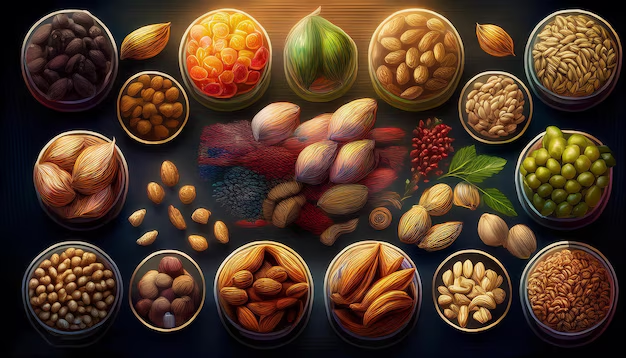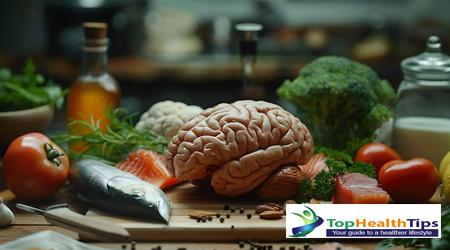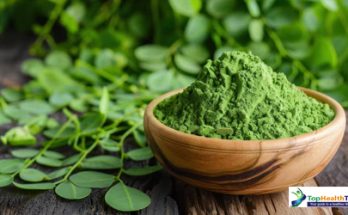We all want a sharper mind, better memory, and improved focus to help us get through daily challenges. Did you know that the foods you eat can significantly impact how well your brain functions? By including brain-boosting foods in your diet, you can help enhance cognitive abilities and protect your brain against memory decline. In this article, we’ll explore some of the best foods for better memory and focus, providing clear, science-based advice for a healthier brain.
Why Nutrition Matters for Brain Health
Just like the rest of your body, your brain needs the right fuel to function well. The foods you eat influence brain structure and function, including memory and concentration. Nutrient-rich foods that support brain health can improve mental clarity, sharpen memory, and even slow cognitive decline as you age.
Eating a balanced diet rich in antioxidants, healthy fats, vitamins, and minerals can offer protection against brain aging and neurological disorders. Let’s dive into the foods that can help boost your brainpower.
Top Brain Foods for Memory and Focus

1. Fatty Fish
Fatty fish like salmon, trout, and sardines are rich in omega-3 fatty acids, which are essential for brain function. Omega-3s help build brain and nerve cells and are crucial for learning and memory. Studies have shown that people with higher levels of omega-3s have better cognitive performance.
Why It’s Good:
- Reduces mental decline.
- Supports brain cell function.
- Improves memory and focus.
How to Eat:
- Include fatty fish in your diet twice a week.
- Try grilled salmon or sardines on whole-grain toast.

2. Blueberries
Blueberries are packed with antioxidants, particularly flavonoids, which can help protect the brain from oxidative stress. These antioxidants may improve brain cell communication and delay brain aging.
Why It’s Good:
- Enhances memory and cognitive function.
- Protects the brain from free radical damage.
How to Eat:
- Add blueberries to your morning cereal or smoothie.
- Enjoy a handful of fresh or frozen blueberries as a snack.

3. Dark Chocolate
Dark chocolate contains flavonoids, caffeine, and antioxidants. These compounds can improve brain function by enhancing blood flow to the brain, reducing inflammation, and increasing memory.
Why It’s Good:
- Boosts mental alertness.
- Improves focus and memory retention.
How to Eat:
- Enjoy a small piece of dark chocolate as an afternoon pick-me-up.
- Choose dark chocolate with at least 70% cocoa for maximum benefits.

4. Nuts and Seeds
Nuts, especially walnuts, and seeds like sunflower seeds are excellent sources of vitamin E, which has been linked to preventing cognitive decline as we age. They are also rich in healthy fats, antioxidants, and brain-supporting nutrients.
Why It’s Good:
- Supports long-term brain health.
- Enhances cognitive function.
How to Eat:
- Sprinkle nuts or seeds on salads, yogurt, or oatmeal.
- Keep a mix of nuts and seeds as a healthy snack option.

5. Leafy Greens
Leafy green vegetables like spinach, kale, and broccoli are rich in vitamin K, lutein, and folate, all of which help improve brain function. These nutrients are essential for cognitive development and protecting the brain from age-related decline.
Why It’s Good:
- Improves memory retention.
- Reduces brain inflammation.
How to Eat:
- Add leafy greens to salads, smoothies, or stir-fries.
- Incorporate broccoli as a side dish for meals.

6. Eggs
Eggs are a great source of choline, a nutrient that is vital for memory and mood regulation. They also contain B vitamins like B6, B12, and folic acid, which help reduce levels of homocysteine, a compound linked to cognitive decline.
Why It’s Good:
- Boosts memory and cognitive skills.
- Improves brain development.
How to Eat:
- Have scrambled eggs for breakfast or add hard-boiled eggs to salads.
- Incorporate eggs into a vegetable frittata for a nutrient-dense meal.

7. Whole Grains
Whole grains like oats, brown rice, and quinoa provide glucose, which the brain uses as fuel. Whole grains are also rich in fiber, which helps regulate blood sugar and energy levels, allowing for steady focus and mental clarity throughout the day.
Why It’s Good:
- Provides steady energy for the brain.
- Supports concentration and memory.
How to Eat:
- Enjoy oatmeal or whole-grain toast in the morning.
- Include quinoa or brown rice as part of your lunch or dinner.

8. Coffee and Green Tea
Both coffee and green tea contain caffeine, which can improve mental alertness, memory, and focus. Green tea also contains L-theanine, an amino acid that has calming effects, reducing anxiety while boosting focus.
Why It’s Good:
- Increases alertness and mental clarity.
- Enhances focus without jittery effects.
How to Eat:
- Drink a cup of coffee or green tea to kickstart your day.
- Choose decaf options in the afternoon to avoid sleep disruption.
Simple Tips for Boosting Memory and Focus with Food
Eating the right foods is key to enhancing memory and focus, but small lifestyle changes can make a big difference too. Here are a few tips to help you make the most of your diet:
- Stay Hydrated: Your brain is about 75% water, so staying hydrated helps with concentration and memory.
- Limit Processed Foods: Processed foods can lead to mental fog and sluggishness. Stick to whole, nutrient-dense foods.
- Eat Regularly: Maintain consistent meal times to avoid dips in blood sugar that can impact focus and memory.
- Exercise Regularly: Physical activity increases blood flow to the brain, supporting cognitive health.
Conclusion
Boosting your memory and focus doesn’t require a complete diet overhaul—just a few mindful changes. Incorporating brain-friendly foods like fatty fish, blueberries, nuts, leafy greens, and whole grains can give your brain the fuel it needs to function optimally. By making these small adjustments to your daily routine, you can improve cognitive function, enhance memory, and promote long-term brain health.
Related post for nutrition & food>>>
References
- Harvard T.H. Chan School of Public Health. (n.d.). Brain foods: the role of diet in brain performance and health. Retrieved from https://www.hsph.harvard.edu.
- National Institutes of Health (NIH). (2017). Omega-3 fatty acids and brain health. Retrieved from https://www.ncbi.nlm.nih.gov.
- Healthline. (2021). 12 foods to boost brain function. Retrieved from https://www.healthline.com.
- The Journal of Nutrition, Health & Aging. (2015). Antioxidants and brain health: the role of flavonoids in cognitive function. Retrieved from https://link.springer.com.
- American Academy of Neurology (AAN). (2021). Walnuts and brain health: new research suggests positive link. Retrieved from https://www.aan.com.
- Mayo Clinic. (2021). How nutrition affects your brain. Retrieved from https://www.mayoclinic.org.
- Frontiers in Aging Neuroscience. (2020). Impact of a nutrient-dense diet on memory and cognitive function. Retrieved from https://www.frontiersin.org.
- The Journal of Alzheimer’s Disease. (2019). The Mediterranean diet and brain health: how eating habits impact cognition. Retrieved from https://content.iospress.com.




